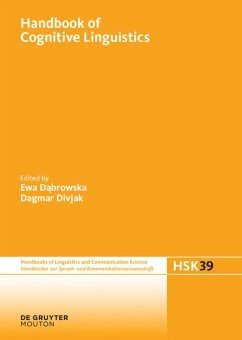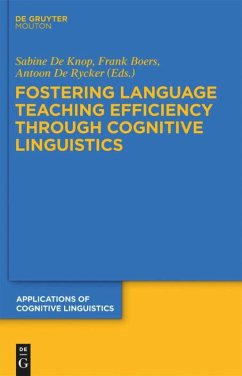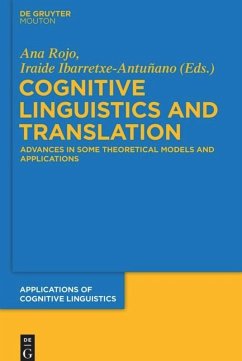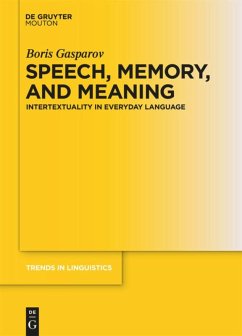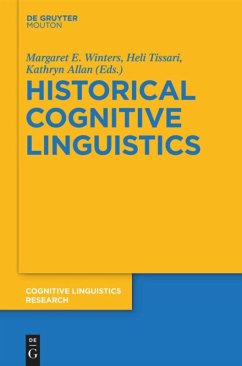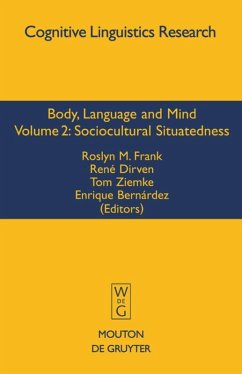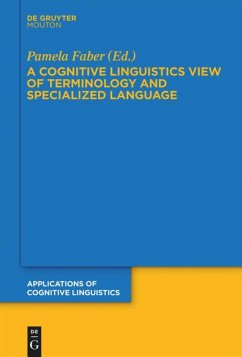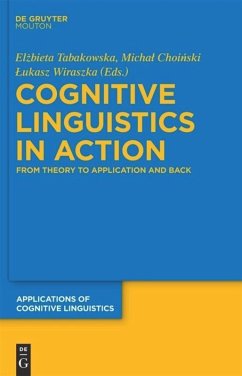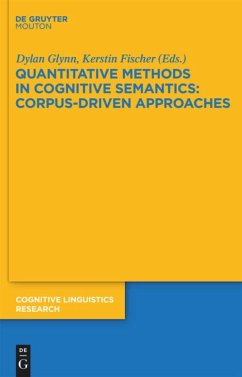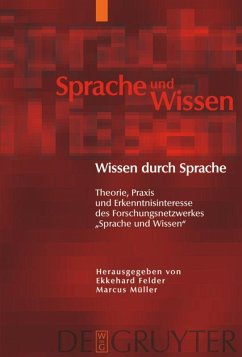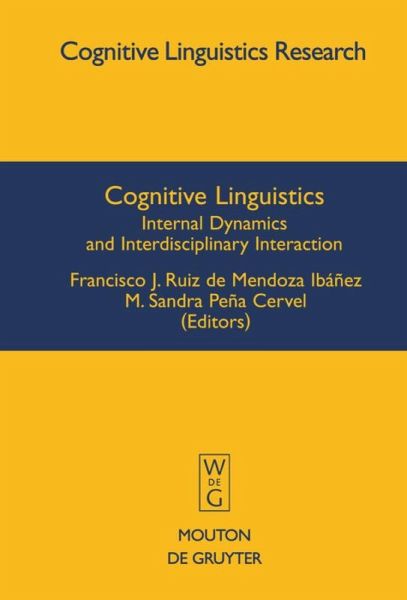
Cognitive Linguistics
Internal Dynamics and Interdisciplinary Interaction
Herausgegeben: Peña Cervel, M. Sandra; Ruiz de Mendoza Ibáñez, Francisco J.
Versandkostenfrei!
Versandfertig in 1-2 Wochen
145,99 €
inkl. MwSt.

PAYBACK Punkte
73 °P sammeln!
The book testifies of the great tolerance of Cognitive Linguists towards internal variety within itself and towards external interaction with major linguistic subdisciplines. Internally, it opens up the broad variety of CL strands and the cognitive unity between convergent linguistic disciplines. Externally, it provides a wide overview of the connections between cognition and social, psychological, pragmatic, and discourse-oriented dimensions of language, which will make this book attractive to scholars from different persuasions. The book is thus expected to raise productive debate inside and...
The book testifies of the great tolerance of Cognitive Linguists towards internal variety within itself and towards external interaction with major linguistic subdisciplines. Internally, it opens up the broad variety of CL strands and the cognitive unity between convergent linguistic disciplines. Externally, it provides a wide overview of the connections between cognition and social, psychological, pragmatic, and discourse-oriented dimensions of language, which will make this book attractive to scholars from different persuasions. The book is thus expected to raise productive debate inside and outside the CL community. Furthermore, the book examines interdisciplinary connections from the point of view of the internal dynamics of CL research itself. CL is rapidly developing into different compatible frameworks with extensions into levels of linguistics description like discourse, pragmatics, and sociolinguistics among others that have only recently been taken into account in this orientation.
The book covers two general topics: (i) the relationship between the embodied nature of language, cultural models, and social action; (ii) the role of metaphor and metonymy in inferential activity and as generators of discourse ties. More specific topics are the nature and scope of constructional meaning, language variation and cultural models; discourse acts; the relationship between communication and cognition, the argumentative role of metaphor in discourse, the role of mental spaces in linguistic processing, and the role of empirical work in CL research. These features endow the book with internal unity and consistency while preserving the identity of each of the contributions therein.
The book covers two general topics: (i) the relationship between the embodied nature of language, cultural models, and social action; (ii) the role of metaphor and metonymy in inferential activity and as generators of discourse ties. More specific topics are the nature and scope of constructional meaning, language variation and cultural models; discourse acts; the relationship between communication and cognition, the argumentative role of metaphor in discourse, the role of mental spaces in linguistic processing, and the role of empirical work in CL research. These features endow the book with internal unity and consistency while preserving the identity of each of the contributions therein.




